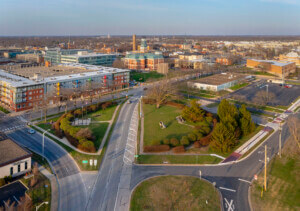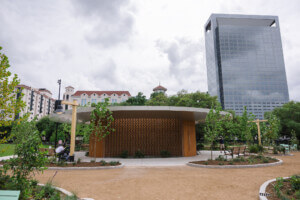The MacArthur Genius Fellow and landscape architect Walter J. Hood will be taking over as chair at UC Berkeley’s Department of Landscape Architecture & Environmental Planning. Hood will have a two-year appointment as chair, according to a press release.
Hood first joined UC Berkeley in 1993 as a professor. To date, he’s also held faculty appointments at Yale SoA, RISD, and Harvard GSD where he was a Senior Loeb Scholar. Between 2012 and 2022, Hood served as Woo Chair for Design Excellence at Berkeley.
Since receiving his MArch and Master of Landscape Architecture from Berkeley’s College of Environmental Design (CED) in 1989, Hood’s award-winning practice, Hood Design Studio, has negotiated issues related to social and environmental justice in the built landscape with a “concern for ecological sustainability.”
He earned a Master of Fine Arts from the School of the Art Institute of Chicago in 2013 and has authored numerous publications such as Urban Diaries (1997).
He’s also coedited anthologies such as Blues & Jazz Landscape Improvisations (1993) and Black Landscapes Matter (2020); the latter was awarded the John Brinckerhoff Jackson Prize from the Foundation for Landscape Studies. Hood has featured installations at the African Ancestors Memorial Garden surrounding the International African American Museum (IAAM) in Charleston, South Carolina and the latest Venice Biennale.
The announcement comes amid a slew of other accomplishments for the lauded designer. RISD presented him with an honorary doctorate in 2023. Aside from his MacArthur Genius Award, he’s been the recipient of the Dorothy and Lillian Gish Prize, Knight Foundation Public Spaces Fellowship, United States Artists Fellowship, and the President’s Medal from the Architectural League of New York. He’s also presently a member of the American Academy of Arts and Letters and will soon join the illustrious American Academy of Arts and Sciences this September.
“The hybridity of the department is a strength,” Hood said in the press release. “Both design and ecology are at the forefront of human-centered planning. By bringing these fields together more closely, we are well-positioned to confront issues facing us today.”











